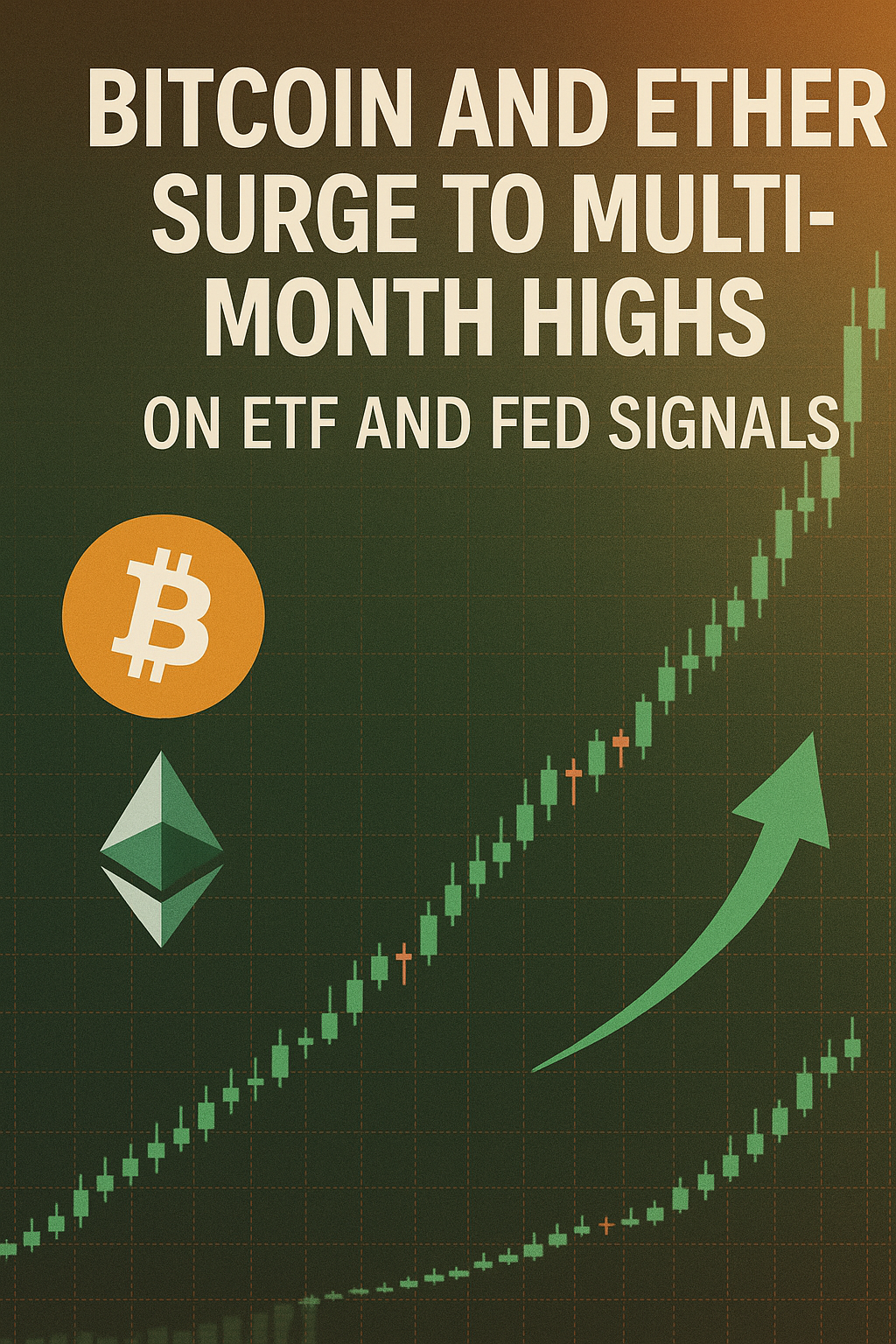1. SEC Green-Lights First U.S. Spot Bitcoin ETFs
The U.S. Securities and Exchange Commission on Wednesday approved the first spot Bitcoin exchange-traded funds, marking a watershed moment for crypto investors. BlackRock, Fidelity, and other issuers can now list their Bitcoin ETFs on major exchanges as soon as next week, pending final listing approvals. After years of repeated denials and deferrals, the SEC concluded that the proposed funds’ custody, surveillance, and anti-fraud measures satisfy investor-protection standards. Market participants expect the new vehicles to channel tens of billions of dollars of fresh capital into Bitcoin, potentially reducing price volatility and boosting institutional participation. Bitcoin jumped over 10% on the news, briefly topping $70,000. The decision may also pave the way for spot ETFs in other digital assets, including Ether. (via Reuters, CoinDesk)
2. Bitcoin and Ether Surge to Multi-Month Highs on ETF and Fed Signals
Major cryptocurrencies rallied strongly this week as traders priced in both the imminent debut of spot Bitcoin ETFs and dovish undertones from the Federal Reserve. Bitcoin climbed above $70,000 for the first time since April, up more than 15% over seven days. Ether likewise reached a 2024 high near $4,700, buoyed by renewed optimism around U.S. spot Ether ETFs and the upcoming Shanghai upgrade’s impact on staking yields. Fed Chair Jerome Powell’s comments suggesting potential rate cuts in late 2024 further fuelled risk-on sentiment. Trading volumes across spot, futures, and options markets swelled, while open interest in Bakkt and CME Bitcoin futures set new records. Analysts say the combined ETF and monetary-policy catalysts could usher in a sustained bull phase for major cryptos. (via Bloomberg, The Block)
3. EU’s MiCA Regime Goes Live, Imposing Tougher Rules on Crypto Firms
As of June 30, the European Union’s landmark Markets in Crypto-Assets (MiCA) regulation takes full effect, setting uniform rules for issuers, service providers, and stablecoin operators across 27 member states. MiCA introduces strict capital-reserve requirements for “asset-referenced” and “e-money” tokens, mandates comprehensive disclosure documents, and grants regulators the power to suspend trading or delist non-compliant assets. Crypto firms must obtain authorizations for custody, exchange services, and lending, while stablecoin issuers face tougher redemption and liquidity requirements. The European Securities and Markets Authority (ESMA) will coordinate cross-border oversight. Industry observers see the regime as both a compliance burden and a legitimacy boost, potentially attracting institutional capital to a more regulated EU market. Smaller crypto startups are lobbying for proportionality measures, citing high licensing costs. (via The Block, CoinTelegraph)
4. Phantom Wallet Phishing Attack Drains $7 Million in Solana Tokens
A sophisticated phishing scheme targeting users of the Phantom browser wallet resulted in over $7 million in Solana‐ and SPL-token losses on Friday. Attackers distributed fake “Phantom Update” pop-ups via Twitter direct messages, tricking users into connecting to a malicious dApp. Once connected, the site executed signature requests that granted the hacker access to withdraw funds. Victims reported drained accounts holding SOL, USDC, and popular Solana DeFi tokens. Phantom’s team quickly issued warnings and rolled out an emergency patch, but the incident underscores persistent social-engineering risks in Web3. The Solana Foundation offered a $250,000 bounty for information leading to an arrest. Security experts urge users to verify update links through official channels and to use hardware wallets for large holdings. (via Decrypt, CoinDesk)
5. Binance.US Secures New York “BitLicense,” Eyes Broader U.S. Expansion
Binance.US announced Thursday it has been granted a BitLicense by the New York Department of Financial Services, becoming the latest crypto exchange legally authorized to serve customers in the state. The BitLicense approval follows months of dialogue with regulators over compliance enhancements, including stricter KYC/AML protocols and mandatory risk disclosures. Binance.US CEO Brian Shroder said the license underscores the platform’s “commitment to operate transparently under robust regulatory oversight.” The firm plans to roll out new staking, lending, and derivatives products to New York residents in coming weeks. The development may increase competitive pressure on other exchanges still seeking full regulatory approval in key U.S. jurisdictions. (via CoinDesk)

